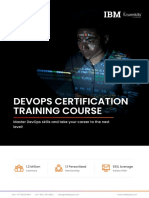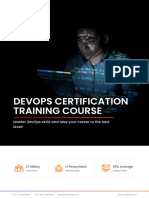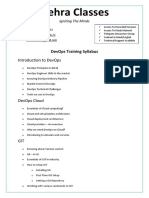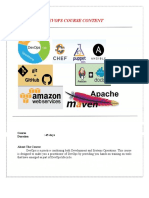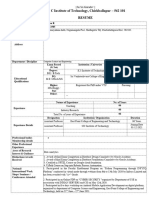0% found this document useful (0 votes)
32 views24 pagesDevOps Syllabus
GUVI offers a Certified DevOps Professional course in English and Tamil, designed to equip learners with essential DevOps skills through live classes and hands-on training. The program, accredited by NSDC, covers a wide range of tools and technologies, including Git, Jenkins, Docker, and Kubernetes, and provides personalized placement guidance. With a focus on practical experience, the course aims to prepare participants for successful careers in the rapidly growing DevOps field.
Uploaded by
ng rokCopyright
© © All Rights Reserved
We take content rights seriously. If you suspect this is your content, claim it here.
Available Formats
Download as PDF, TXT or read online on Scribd
0% found this document useful (0 votes)
32 views24 pagesDevOps Syllabus
GUVI offers a Certified DevOps Professional course in English and Tamil, designed to equip learners with essential DevOps skills through live classes and hands-on training. The program, accredited by NSDC, covers a wide range of tools and technologies, including Git, Jenkins, Docker, and Kubernetes, and provides personalized placement guidance. With a focus on practical experience, the course aims to prepare participants for successful careers in the rapidly growing DevOps field.
Uploaded by
ng rokCopyright
© © All Rights Reserved
We take content rights seriously. If you suspect this is your content, claim it here.
Available Formats
Download as PDF, TXT or read online on Scribd
/ 24




